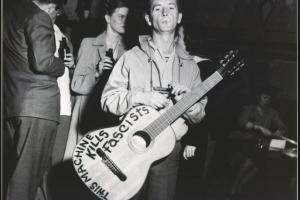The Company She Kept
The New Republic
 A survey of the life, work and associations of the late New York Review of Books editor Elizabeth Hardwick, the transplanted Southerner who became a writer of note among the literary and political circles comprising the New York Intellectuals of the pre- and postwar period, she had a knack for illustrating what might have been called feminist themes by way of specific details of specific lives.
A survey of the life, work and associations of the late New York Review of Books editor Elizabeth Hardwick, the transplanted Southerner who became a writer of note among the literary and political circles comprising the New York Intellectuals of the pre- and postwar period, she had a knack for illustrating what might have been called feminist themes by way of specific details of specific lives.










Spread the word